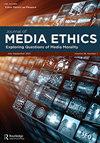When Public and Business Interests Collide: An Integrated Approach to the Altruism-Instrumentalism Tension and Corporate Social Responsibility Theory
IF 1.1
3区 哲学
Q3 COMMUNICATION
引用次数: 2
Abstract
ABSTRACT This article attends to the debate of what motivations – instrumental or altruistic – should drive corporate social responsibility (CSR) decisions and practice; I offer an integrated instrumental and duty-based framework. While the win-win instrumentalism that underlies much of CSR practice is problematic and needs addressing, the notion of altruism is also flawed. Such an application of deontological principles, while well-intentioned, is a) based on a misreading of Kant’s humanity formula, b) does not lend itself to the inherent duality of the CSR concept, and c) constrains the quest and need to mainstream ethical CSR. Instead, I propose that a more pertinent question is how to address firms’ tendency to choose those societal issues that yield private benefits. In this regard, drawing on W.D. Ross’ moral philosophy, I provide a three-level decision criterion for addressing situations where firms’ private interests and social aspirations collide.当公共利益与商业利益发生冲突:利他主义-工具主义张力与企业社会责任理论的综合解读
本文关注的是什么样的动机——工具性或利他性——应该推动企业社会责任(CSR)的决策和实践;我提供了一个综合的工具和基于职责的框架。虽然作为企业社会责任实践基础的双赢工具主义存在问题,需要解决,但利他主义的概念也存在缺陷。这种义务论原则的应用,虽然是善意的,但却是a)基于对康德人性公式的误读,b)不适合企业社会责任概念的内在二元性,c)限制了对主流伦理企业社会责任的追求和需要。相反,我提出了一个更贴切的问题,即如何解决企业选择那些产生私人利益的社会问题的倾向。在这方面,借鉴W.D.罗斯的道德哲学,我提供了一个三级决策标准来处理企业的私人利益和社会愿望发生冲突的情况。
本文章由计算机程序翻译,如有差异,请以英文原文为准。
求助全文
约1分钟内获得全文
求助全文

 求助内容:
求助内容: 应助结果提醒方式:
应助结果提醒方式:


